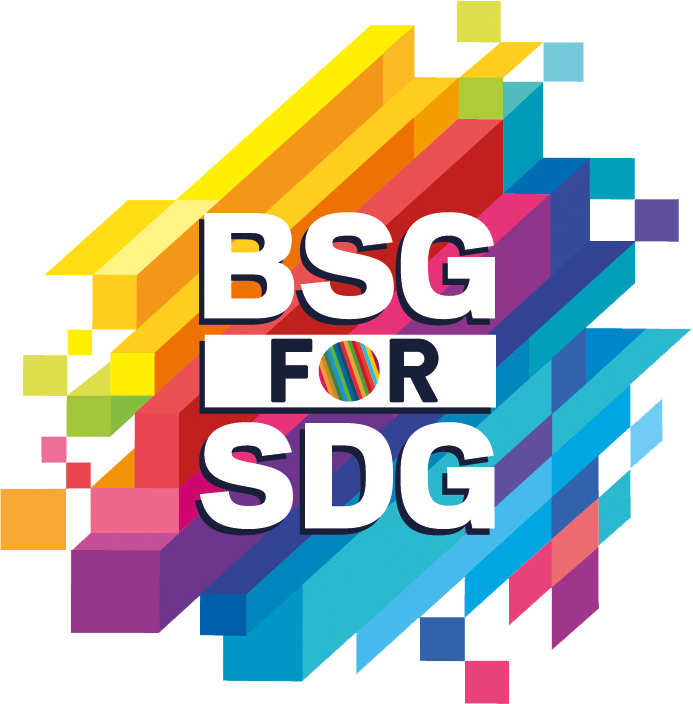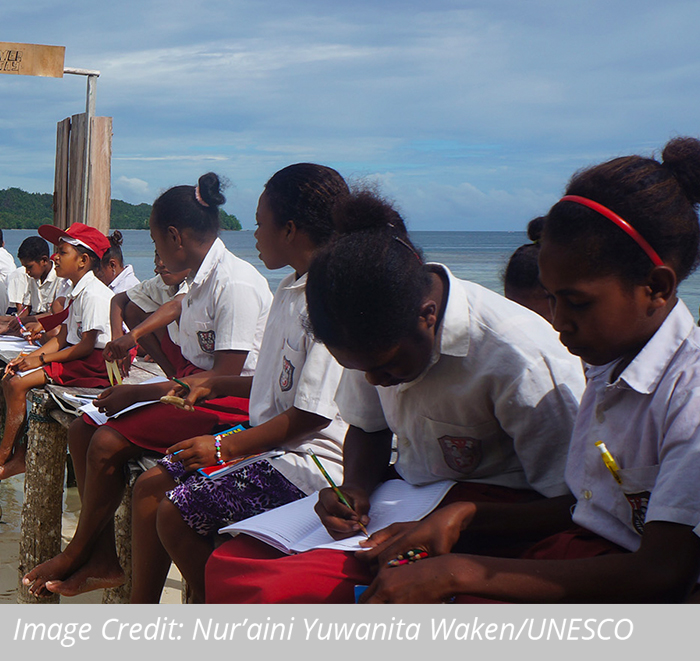Greetings from BSG Chairperson Mr. Vishesh Gupta
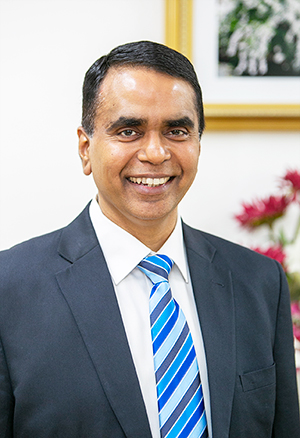
The season of Autumn is about to come soon. It symbolises a time for reflection, change and solemn determination to gear up for the winter ahead! Little wonder that we commemorate many international sustainability days during these months- International Day for Clean Air and Blue Skies (Sep 7), International Day for the Preservation of the Ozone Layer (September 16), and International Amazon Day (Sep 5) among others. These events remind us of Nature’s gifts to us, and of our responsibility to strengthen this symbiotic relationship.
Just what kind of education would inculcate this sense of interdependence, respect and responsibility to protect our diverse ecosystems and the people living in it. This question is at the heart of the global sustainability agenda, and rightfully so. The world is witnessing an alarming increase in youth-led violence, youth suicide and depression, not to mention the risk they face due to climate emergency. The loss of loved ones and safe space they once called home is deep and irreplaceable, hence, leaving them vulnerable.
The time is ripe to rethink our education from beyond literacy and numeracy, to impart the knowledge, skills and mindset to develop the learner’s capacity to create value, underpinned by indomitable hope and the spirit of learning from the collective wisdom of humankind. As SGI President Daisaku Ikeda writes in his 2002 Education for Sustainable Development Proposal, “Nothing is more crucially important today than the kind of humanistic education that enables people to sense the reality of interconnectedness, to appreciate the infinite potential in each person’s life, and to cultivate that dormant human potential to the fullest.”
The seventh issue of the Sustainable newsletter focuses on the theme of ‘Education for Sustainable Development’ (ESD) (marking the 20th anniversary of the ‘Education for Sustainable Development’ Proposal authored by President Ikeda), which aims to equip all learners with the right knowledge, skills and disposition to become responsible global citizens.
In this issue, we will learn more about how it can drive empowerment at an individual and systemic level; deepen our understanding of the term ESD, learn, get inspired by stories around the world, and more.
I look forward to hearing your thoughts and takeaways from this 7th issue of the ‘SUSTAINABLE’ newsletter.
In closing I would like to offer these words of the renowned Nigerian writer, Ben Okri (1959- ), from his poem dedicated to the new century.
You can’t remake the world
Without remaking yourself.
Each new era begins within.
It is an inward event,
With unsuspected possibilities
For inner liberation.
Warm Regards
Vishesh Gupta
BSG Chairperson
The urgent need for a change in the way humans see, think and act is fundamental to address the interconnected global challenges of climate change, biodiversity loss, unsustainable use of resources and inequality and transition towards sustainable development. Education has been identified as the critical input to facilitate this transition. “Education for Sustainable Development” (ESD) is not a particular programme or project, but an umbrella term for many existing and yet to be created forms of education. ESD adds a strong human dimension to sustainable development as it is based on the realisation that policies alone can’t solve the global crisis – and that it is a challenge and undertaking requiring the commitment of all individuals. ESD is also one of the targets of SDG 4 on Quality Education (Target 4.7) and is a critical driver for the achievement of all 17 SDGs towards 2030.
Target 4.7 of the Sustainable Development Goals states: “By 2030, ensure that all learners acquire the knowledge and skills needed to promote sustainable development, including, among others, through education for sustainable development and sustainable lifestyles, human rights, gender equality, promotion of a culture of peace and non-violence, global citizenship and appreciation of cultural diversity and of culture’s contribution to sustainable development.”
“ESD empowers learners with knowledge, skills, values and attitudes to take informed decisions and make responsible actions for environmental integrity, economic viability and a just society empowering people of all genders, for present and future generations, while respecting cultural diversity.” (UNESCO 2020)
“Its particular emphasis on competencies related to empathy, solidarity and action-taking can help advance SDG 4 in building a future where education contributes not only to the successes of individuals, but also to the collective survival and prosperity of the global community.” (UNESCO 2020)
The framework of ESD towards 2030 (ESD for 2030) focuses on: a) individual transformation; b) societal transformation; and c) technological advances, thus further validating the role of the individual. ESD for 2030 targets policy-makers, institutional leaders, learners in all walks of life, parents, educators, youth and communities; and focuses on the priority action areas of: 1) advancing policies for promoting ESD, 2) transforming learning environments (such as schools, universities and staff training centres of private companies), 3) building capacities of educators, 4) empowering and mobilising youth and 5) accelerating local level action.
Education can influence behavioural change at individual or group level through formal schooling, as well as traditional and lifelong approaches to learning. According to the 2016 Global Education Monitoring Report, environmental education is increasingly being integrated in education curricula around the world, with promising benefits. For example, following a Supreme Court ruling, since 2003, the Indian government has stepped up its efforts to integrate ESD in education content, building awareness about the subject in more than 300 million students in 1.3 million schools. Traditional approaches to learning about ESD are widely practised amongst the indigenous communities in many parts of the world, and have positively contributed to ecosystem functioning, disaster risk reduction and early warning systems, and climate change adaptation and resilience, such as the Alaska Rural Systemic Initiative in the United States.
The conversation on ESD has evolved, shifting from a ‘transmissive-mode’ to a ‘transformative mode’. There is growing awareness that learning based on simply transmitting sustainability related knowledge needs to develop into learning that underscores capacity building and empowerment. Thus unleashing the transformative power of education requires moving from first and second orders of learning to third-order learning. First-order learning is based on facts and concepts and within the realm of the existing educational paradigm (for example: awareness of the social, environmental and economic impacts of building a flyover). Second-order learning is an adaptive response to the awareness gained through first order learning, that is how to do the same thing but differently (for example: how to build the flyover but with minimal impact. And this requires reflective and critical thinking). Third-order learning is a creative response, holistic and transformative and requires system level thinking, that is, how to deal with the core problem in a completely new way (for example: instead of looking at flyovers, how can we build public transport to avoid pollution and congestion).
Let’s learn more about ESD by exploring the following sections!
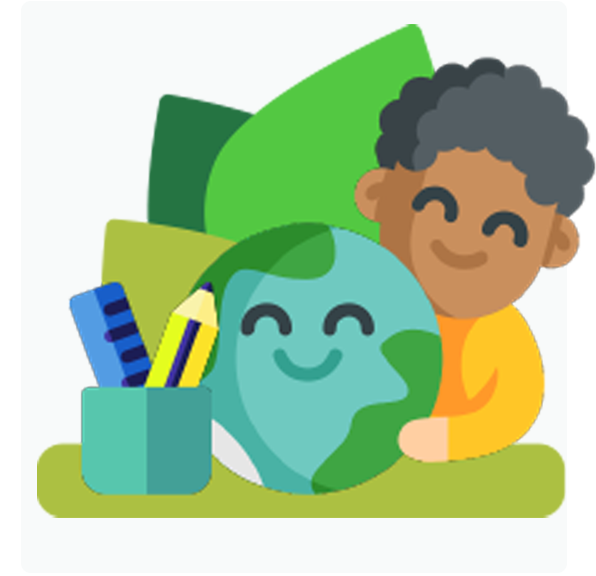
Non-formal Education for Sustainable Development
ESD includes formal, non-formal and informal modes of education. Formal education is hierarchical, within institutions, requires full-time learning and is age-specific. Informal education is not organised and is based on learning from daily experiences. Non-formal education lies in between – while still organised, it can take place both inside and outside institutions, is life-long, and involves all strata of society.
“Non-formal” ESD encompasses a wide range of learning processes based on experiences and real-world settings, and may range from outdoor, field-based learning, to initiatives that help citizens become agents of change in their communities. This takes the concept of ESD beyond the formal educational set-up of schools and universities to lifelong learning that targets not just young people, but adults alike, and individuals from all walks of life. This is because all individuals have the capacity to learn how to make unique contributions towards the goal of a more equitable, sustainable and secure world.
For instance, in 2015, the Ethiopian government collaborated with NGOs to launch a two-year campaign encouraging the use of solar lighting products. Many web based campaign groups are also instrumental in raising awareness on several issues, including on sustainability. One such is Avaaz, with 44 million members in 194 countries, which generated a huge groundswell through its two-year campaign to ban bee-killing pesticides.
Thus non-formal ESD could include:
- A rural community learning how to address local issues in the village in a sustainable way (go ‘To See’ section to
- learn about the ‘Barefoot’ movement as an example).
- An organisation conducting training on gender, diversity and inclusion at the workplace for its employees. Students doing a nature excursion in a tribal forested area to learn about biodiversity and traditional knowledge from the local community on the importance of valuing and protecting biodiversity.
- Residents forming an environment club that conducts waste segregation workshops for their neighbours. And so much more!
 To Read
To Read
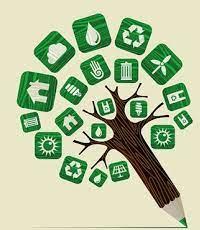
SGI President Daisaku Ikeda’s Writings on Education for Sustainable Development
SGI President Daisaku Ikeda has extensively shared his thoughts on ESD, as he believes it provides the opportunity for all people to learn the values, behaviour and lifestyles required for positive societal transformation.
This year marks 20 years since President Ikeda introduced the “Education for Sustainable Development Proposal” on the occasion of the World Summit on Sustainable Development (WSSD) in 2002. In this proposal, President Ikeda advocated a three-point formula to promote ESD, namely: 1) to learn, 2) to reflect, 3) to empower. The Soka Gakkai also initiated the proposal for a decade on ESD at the WSSD in discussion with NGOs in Japan. This proposal was eventually adopted by the UN General Assembly leading to the UN Decade of ESD from 2005-2014.
Read the full proposal by President Ikeda on Education for Sustainable Development.
Read an editorial on ESD by President Ikeda published in The Japan Times on Nov. 22, 2004.
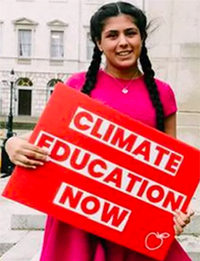
Growing Momentum on Climate Change Education
Did you know that the UK now has its first Bill on climate education written by students backed by their conviction that the education system should bring the climate crisis into focus in every single subject.
Climate action is one of the key thematic priorities of “ESD for 2030” – a global framework on ESD for the next 8 years. Read more on UNESCO’s focus on climate change education.
The United Nations (The United Nations Educational, Scientific and Cultural Organisation (UNESCO) and The Bureau of the United Nations Framework Convention on Climate Change (UNFCCC)) have launched a series of monthly conversations on climate change education for social transformation starting from April 2022, running up to November 2022 as part of their on the road to COP 27 (the upcoming UN Climate Change Conference) webinar series. Recordings of these webinars can be accessed at the link below.

Inspiring Stories on ESD from Around the World
Learn how students in Uruguay are breaking down classroom walls to be one with nature.
Learn how citizens of Okayama (Japan) are working together to achieve environmental preservation, global understanding, and disaster reduction.
Learn how an education initiative in Senegal is raising awareness among youth and local communities on the importance of protecting marine biodiversity and underwater heritage.
 To See
To See
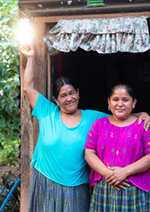
Learning from the Barefoot Movement
This inspiring TED Talk by educator and founder of Barefoot College Sanjit “Bunker” Roy introduces the decades long efforts of Barefoot College. The first Barefoot College was built in 1986, and has been set up as an institution that promotes lifelong and community-based learning for the illiterate and semi-literate in rural areas. Barefoot College trains women worldwide as solar engineers, entrepreneurs and educators, who then return to their villages to bring light and learning to their community.
Watch here
 To Listen
To Listen
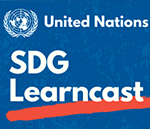
United Nations SDG Learncast: Sharing Insights on Sustainable Development Learning
This is a podcast series produced by UN SDG:Learn, a United Nations initiative, that features stories from individuals and organisations working towards the achievement of the Sustainable Development Goals by 2030, and how they use learning and knowledge sharing as tools to pace up the implementation of the goals. Hear exciting podcasts on themes around the use of technology to ensure no one is left behind, making climate science accessible, making small and medium sized businesses more sustainable, and much more!
 To Play
To Play
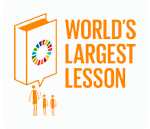
World’s Largest Lesson
World’s Largest Lesson promotes the use of the Sustainable Development Goals in learning by producing creative tools for educators and action-focused learning resources for children and young people. Each year, World’s Largest Lesson creates campaigns and challenges to keep student learning engaging and relevant.
Explore here
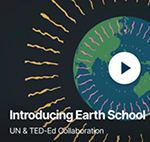
Earth School
Earth School is an initiative by TED-Ed, supported by the United Nations Environment Programme (UNEP), consisting of climate-related content and quizzes to help build an understanding of how our planet works and what it will take to save it. Upon completing any 30 lessons you also become eligible to earn a certificate!
Explore here
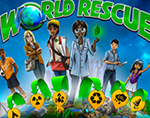
World Rescue Game
In this mobile-based video-game set in Kenya, Norway, Brazil, India, and China, you will meet and help five young heroes and help them solve global problems—such as displacement, disease, deforestation, drought, and pollution—at the community level. The game was developed by UNESCO MGIEP in collaboration with Zu digital, to promote the use of video games as a tool for ESD, peace education and global citizenship. Download the game from the Google Playstore by searching for ‘World Rescue’.
The issues that our society faces today are complex, global and interrelated – poverty, hunger, gender inequality and discrimination, lack of decent work or education, lack of access to clean water etc., all these challenge social development and harmony at many levels. These challenges affect us all in varying degrees, no matter where we stay or how much we earn, thus emphasising our interdependence. We need a new way of envisioning and engaging with these real challenges, that recognizes these interconnections and empowers people to address the reality with courage, hope and optimism. The Sustainable Development Goals lays significant emphasis on the role of education in this newly envisioned future.
It is not enough for education to simply focus on literacy and numeracy skills, or even build knowledge about the issues, but rather, education must also develop the learner’s capacity to create value, underpinned by indomitable hope and the spirit of learning from the collective wisdom of humankind. President Ikeda concurs when he writes: “education should encourage understanding of the ways that environmental problems intimately connect to our daily lives. Education must also inspire the faith that each of us has both the power and the responsibility to effect positive change on a global scale.”
In his seminal work, ‘The Geography of Human Life’, first Soka Gakkai President Tsunesaburo Makiguchi approached the study of nature and the physical environment through the activities of human beings, their interrelationship and mutual impact. Through the method of inquiry and observation, he enabled his students to cultivate a sense of belongingness, respect and responsibility towards the community and the natural environment. Underlying his efforts was an undying belief in the capacity of learners to lead a happy and value creating life, and become truly empowered and committed global citizens. Empowerment is also at the heart of successful ESD.
On the occasion of the 2002 World Summit on Sustainable Development (WSSD), President Ikeda emphasised that the key to enabling effective change and empowerment on a global scale lies in a renewed focus on humanity, reforming and opening up the inner capacities of our lives. He further goes on to say that the courage and hope that arise from this inner change must enable people to face and break through even the most intractable realities, a process of value creation that ultimately transforms society. However, the challenge of value creation is to be able to perceive the ways in which individual life (the micro) and the broader system that surround us (the macro) interact with each other; and more importantly, how to reinforce positive transformation on both planes.
Towards this, he posits three aspects of value creation to not only bolser our social resilience but also enable progress toward a sustainable global society:
- Value creation that always takes hope as its starting point;
- Value creation of people working together to resolve issues; and
- Value creation that calls forth the best in each of us.
Further on, in his 2014 peace proposal, he emphasised the need for a new educational framework that would serve to expand the focus from individual empowerment to a collective effort to create value, and posits three key elements that such an educational program:
- Deepen understanding of the challenges facing humankind, enable people to explore their causes and instil the shared hope and confidence that such problems, being of human origin, are amenable to human solutions;
- Identify the early signs of impending global problems in local phenomena, develop sensitivity to such signs and empower people to take concerted action; and
- Foster empathetic imagination and a keen awareness that actions that profit one’s own country might have a negative impact on or be perceived as a threat by other countries, elevating this to a shared pledge not to seek one’s happiness and prosperity at the expense of others.
In fact hope, people’s solidarity, empowerment and dialogue have been the main themes around which the Soka Gakkai has centred its ESD and peace related efforts such as organising various exhibitions such as “War and Peace” (1989), “Toward a Century of Humanity: Human Rights in Today’s World” (1993), “Building a Culture of Peace for the Children of the World” (2003), “Seeds of Hope,” and more recently, the Seeds of Hope and Action (SOHA) exhibition. Over the years, large numbers of students, from elementary to high school, have visited these exhibitions, making them an effective tool for environmental education.
Dialogue plays a very important role in this process of building people’s solidarity and momentum for positive action. It is the starting point and unifying force in all human relationships; and delivers the promise of creating a chain reaction of empowerment, one life at a time.
Making Education for Peace and Sustainability a Way of Life For AllAnamika Gupta | Women’s Division | Faridabad
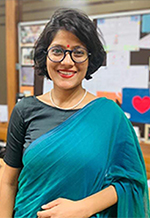
I joined the Soka Gakkai as a high school student. Reading SGI President Daisaku Ikeda’s writings, particularly his annual peace proposals to the United Nations, awakened in me a strong desire to work in the United Nations (UN) for peace and gender equality.
After a brief stint in news media, I decided to quit my comfortable life to fulfil my desire to work for peace and gender issues. So in 2011, I began working for an NGO in Kashmir for the education of militancy-affected girls. The educational programmes I designed were inspired by the ideals of Soka Education – which has a focus on humanistic education for the overall development of the students, and it was immensely successful. It made a huge difference to the lives of the girls: it taught them to laugh freely, express their feelings honestly, build friendships across their unique divides and understand themselves better. They deepened their understanding about who they were, their dreams and aspirations, their fears and assumptions about themselves as well as those different from them and explored the purpose of their lives.
Deeply encouraged by these encounters, I went on to do a Masters in Peace and Conflict Studies in a European University. There, I exerted myself wholeheartedly in my studies, sharing President Ikeda’s peace proposals with my classmates and professors. When five women, including me, were ostracised by the rest of the student body for defending a fellow classmate who was sexually harassed, I understood the cost of working for peace and human rights. I learnt to counter hostility with humanity. Incidentally, around the same time, I secured an internship in the ‘Ending Violence Against Women’ unit of a United Nations agency dedicated to women rights. Eventually, I completed my thesis on ‘The Application of Soka Education in the Context of Conflict-affected Girls in Kashmir’, graduating as one of the top three students in my batch. That very week, I secured my dream job of working with the United Nations in the field of education.
My work involved researching innovative teaching and learning methods for peace, sustainable development and global citizenship, including conducting policy research and proposing data recommendations to policy makers to help them realise equitable digital education for all students. I have had the opportunity to lead meaningful education projects such as on the use of digital games for learning about peace and sustainability, global citizenship education, role of education for Preventing Violent Extremism (PVE), and enabling countries to adopt quality, and equitable digital learning for all school learners. Amongst the many UN agencies, we became pioneers in the art of using digital games for fostering different global citizenship skills.
One of the outcomes of my work at this UN agency was the development of a mobile game promoting SDGs called ‘World Rescue’, which has been used in several schools to talk about SDGs.
I am determined to make education for peace, ESD and gender equality a way of life for people around the world, and empower young people to lead informed and responsible lives as global citizens.
Passionately Working to Transform Society through Humanistic Education Satarupa Majumder | Women’s Division | Kolkata
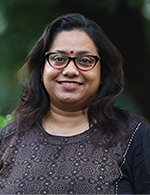
I am a teacher by profession. In 2012, I travelled to the islands of Hingalganj, Sunderbans, in West Bengal for a personal visit. When the villagers came to know that I am an educator, they requested me to visit them regularly to teach their children. I realised that children in that area didn’t go to school till they were 8 or 9 years old. Once they reached the age of 14, they would drop out as they failed to cope with the stress.
Looking at this stark reality, I, along with some other friends, established the ‘Swapnopuron Welfare Society’ as a learning centre in the heart of Sunderbans in 2012 with about 15 village students. “Swapnopuron” is a Bengali word that translates as “a dream come true”. The purpose of establishing this welfare society was to improve the lives of poor and marginalised women and children through child education, child protection, literacy programs, women employment, and empowerment.
There were many challenges I encountered in the course of this project – from arranging finances to taking care of my own young child back at home, to supporting my conservative joint family.
But as a teacher, I have always been inspired by my mentor – SGI President Daisaku Ikeda. He writes: “Education is a process of stimulating and awakening people from the very core of their being, enabling them to unlock and develop the power within them to create happiness. For this passion is the key”.
Basing myself on the writings of President Ikeda, I roused up greater passion and commitment towards the project and overcame all hurdles. I self-financed the project from my other earnings and savings; I trained myself in social organisation development; and then in 2018, I gave up my job to focus single-mindedly on this project. Using my retirement fund, I took up 1.2 acres of land on a 99-years lease to start the only English-medium school in the Sunderbans. As our organisation expanded, the number of children attending our school increased from 75 in 2016, to 182 in 2019. At present, there are nearly 380 students in our schools.
In 2020, when the COVID-19 pandemic struck, most education institutes had to temporarily close down, but in our remote village school, online education proved to be a big success. Children who had no access to devices were taught through worksheets. This generated a lot of momentum in the islands, and the administration came forward to request us to open branches in other remote areas. Enrolment in these schools varied between 100 to 200 students.
Our focus is on integrating ‘Soka Education’, or ‘Humanistic Education’ in these schools, which has a focus on pragmatic education and the overall development of a student’s life, as conceptualised by the renowned educationist and first Soka Gakkai President Tsunesaburo Makiguchi. We reach out to students with wisdom and compassion, not focusing solely on their grades but also on learning skills that will enhance their measure of happiness. We empower the teachers to be teachers with humility and advance together with their students.
In May 2020, various riverbeds were inundated in the aftermath of the super cyclone Amphan. People were safe but houses and land remained under water for months. During this time, our staff worked hard to distribute more than 76,000 cooked meals and 13,000 ration kits to households in the affected villages. During the second wave of the COVID-19 pandemic in 2021, our teachers reached out to more than 500 patients and distributed safety kits to 272 community health workers.
Since 2020, we are actively engaged in plantation drives and have planted mangroves along riverbanks covering 4 to 6 kms. Mangrove saplings are made and distributed among villagers. Vetiver plantation is also an important activity. In 2022, 2,50,00 vetiver plants have been planted along the riverbeds to stop soil erosion.
Through various activities in these remote villages, our effort naturally integrates SDG 1, 4, 6, 8 and 13 on poverty reduction, education, clean water and sanitation, decent work and economic growth and climate action.
Since 2021, we have bagged several awards and felicitations. Articles about our project have also appeared in The Hindu, and other journals like Global India, Better India, Bloomberg; and we have also been featured in a recently launched book titled ‘Magical Forty’.
I have been trained in the Soka Gakkai, which has helped me to bring forth my inner potential and develop a vast heart to lead others to happiness. Taking this training forward, I am determined to raise the most capable teachers and staff and contribute to the happiness and growth of all students in remote corners of India through the model of Soka Education / Humanistic Education.
 SDG Tip for Daily Life
SDG Tip for Daily Life
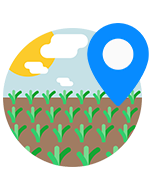
Cultivating a Shared Future
Do you ever wonder how can we, in our daily lives, be empowered to make a positive contribution to living in a more just, peaceful, tolerant, inclusive and sustainable world? What can we do as active global citizens in support of sustainable development at the local and global levels? Check out this interesting guidebook to explore some innovative ideas on how you can start thinking about Global Citizenship and Sustainable Development at home, in school, as part of a community, and so on.
Explore here
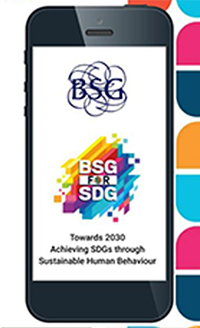
Updates
1. ‘BSG for SDG’ mobile app and website launched
Bharat Soka Gakkai (BSG) launched the ‘BSG for SDG’ mobile application and website on 7th August 2022, that serves as a one-stop-platform for all SDG related information and help all people adopt ‘Sustainable Human Behaviour’ as a basic way of life. The app can be downloaded from the Google playstore and the Apple appstore by searching for ‘BSG for SDG: Learn and Act Now’
Through this mobile app, users can:
(a) upload their actions and inspire others on how they are contributing to the SDGs in their life,
(b) learn more details and facts about the SDGs,
(c) Pledge to various campaigns to commit to the SDGs,
(d) Play fun quiz to test their knowledge on the SDGs,
(e) And explore a host of other exciting features
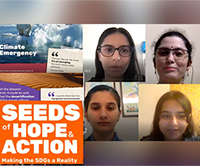
2. BSG organises the ‘Seeds of Hope & Action (SOHA): Making the SDGs a Reality’ exhibition in various educational institutes
The ‘Seeds of Hope & Action (SOHA): Making the SDGs a Reality’ exhibition was organised by BSG at The Modern School, Vasant Vihar on 6th July 2022 (online); Holy Child School, Panchkula on 28th July 2022 (online); IIFM Bhopal on 3rd September 2022 (offline), and IIT Bombay on 4th September 2022 (offline).
The exhibition is a joint initiative of Bharat Soka Gakkai (BSG) and Earth Charter International. SOHA is a 24-panel exhibition which is held across various educational institutes with the aim to spread awareness about sustainability to the young students of the country; encouraging them to overcome feelings of powerlessness and highlight the fact that a single individual can initiate positive change. The SOHA exhibition raises awareness on climate change, the SDGs and the role of youth.
Read more
3. UNESCO launches 1st graphic novel on AI
UNESCO launched its first graphic novel on Artificial Intelligence (AI), ‘Inside AI- An Algorithmic Adventure’ on 7 September 2022 during the UNESCO -Southern Africa sub-Regional Forum on Artificial Intelligence (AI) (SARFAI) in Windhoek, Namibia. The novel explores the impact of Artificial Intelligence on humankind, and is targeted towards young adults. The initiative is part of UNESCO’s work to harness emerging technology for sustainable development.
Read more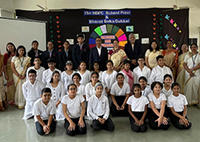
4. SDG Club formed at HDFC School, Pune
BSG and HDFC School, Pune, jointly launched a SDG Club at the school through a formal launch meeting held on 25th August 2022. This launch meeting was attended by the school Principal, representative students, faculty, and BSG Staff. The SDG Clubs serve as a platform for students to learn about the SDGs, discuss practical solutions to contribute to the SDGs on a daily basis, and adopt ‘Sustainable Human Behaviour’ as a basic way of life, all of which helps in raising SDG leaders across the younger generation, and creating a culture of sustainability.
Read moreContact Us
Any queries or suggestions regarding the newsletter can be addressed to sdg@bharatsokagakkai.org
To know more about the ‘BSG for SDG’ initiative, visit the BSG for SDG website
